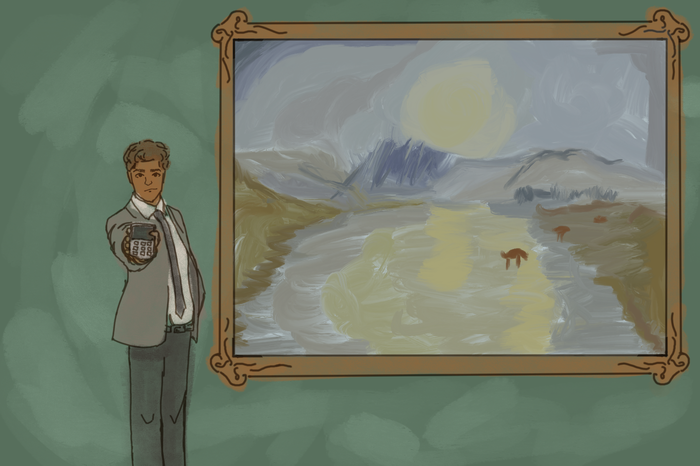In conversation with Laura Wood: women’s literature and Cambridge’s contradictory charm
Bryony Clarke sits down with Laura Wood and discusses her latest novel A Game of Scandal

Following the release of her most recent young adult detective novel, A Game of Scandal, I sat down to speak with bestselling author Laura Wood, expecting to reflect on her research visits to Cambridge and the fate of female education in the nineteenth century and today. Along the way, we delved into wider issues of women’s writing, language bias in the publishing industry, and the cyclical nature of history.
Wood’s work is often described by readers and critics as a charming mixture of Bridgerton and Enola Holmes – another popular iteration of the feminist historical fiction which has seen such a surge in recent years. Aside from her own admitted indulgence in the pure luxury of 19th century balls, gowns, and etiquette, Laura has a theory as to why fiction set in this era has become so beloved: “it’s different, but it’s also the same.” Literature, film and television offer the escapism we crave in our complicated modern world, but with recognisable themes of “unbelievable change,” technological advancement and social tensions.
Of her research and writing process, Laura remarks on how historical inequality “is all so much closer than you think.” “So much of the stuff I’m writing about in the 1900s still feels so frighteningly relevant.” She found the experience of visiting Cambridge whilst preparing for her most recent release, A Game of Scandal, to be contradictory, much like that time. Echoing what almost all students feel at some – or many – points of their time here, Laura laughs as she tells me how bizarre our avant-garde, ancient institution seemed, even as an outsider: “Cambridge is such a weird mixture of unbelievably progressive and terribly behind.”
“‘Cambridge is such a weird mixture of unbelievably progressive and terribly behind’”
Asking about my own experience as a current student, we reflect on the frustrating lack of female academics at the top of disciplines dominated by women students, a “vicious cycle” which her latest novel’s protagonist was fighting over a century ago.
Wider than the world of academia, part of the social work that Laura is particularly passionate about is the plethora of issues around language and representation that face female writers. Reflecting on the rise of ‘BookTok’ and the sensationalised popularity of reading as a hobby, she tells me the revival of the paperback is amazing, but assures me that this subculture “was always there.” Social media has merely provided the tools of connection to craft a community from what is otherwise a rather solitary pastime.
The trend has also been a “major win for the romance genre,” which was the highest grossing genre last year, seeing a “£56 million leap” in 2024 despite historically being looked down upon by the publishing industry. Romance novels have often been grouped under “general fiction” to avoid the misogynistic stereotypes and subsequent economic losses associated with the category, reflecting a wider problem of the “outdated language” we use to talk about literature.
“Half-joking, Laura points out that if we had to separate the genre by gender, statistically, it should be ‘men’s fiction’ that is the outlier”
As several well-meaning readers have told her proudly, Laura’s adult books are “almost more in the category of women’s fiction than romance” – a backhanded compliment she is not interested in accepting. Since the nineteenth century and its substantial changes to our experience of reading, “the number of women reading fiction has always dramatically outstripped the number of men,” which begs the question: why do we designate ‘women’s fiction’ as a sub-category? Half-joking, Laura points out that if we had to separate the genre by gender, statistically, it should be ‘men’s fiction’ that is the outlier.
Frustratingly, Laura sees herself as another example in a long line of female authors whose work has been dismissed or diminished for its overtly feminine themes. She lists a handful of her own inspirations from the nineteenth century, namely George Eliot, Mary Elizabeth Braddon, and Jane Austen. Of the latter, she highlights the lunacy of viewing Austen’s work as ‘girly’ just because of her gender and romantic themes. In a 2022 project for Barrington Stoke, she published a dyslexia-friendly retelling of Pride and Prejudice, which turned out to be a much more difficult task than she had expected. Approaching the text with the initial goal of “cutting out the excess bits,” she quickly realised that Austen’s clean, razor-sharp style and undeniable wit left very little room for frills. ‘She’s the cleanest writer! ’
As a budding author and academic myself, Laura’s sharp insights into the professional world of literature offer a refreshing shot of cautious optimism mixed with actionable rage for the future of women’s writing. She will be visiting Cambridge Waterstones this week for a discussion of her most recent novel, open conversation with readers and book signing – catch her on the 21 February at 4pm.
Want to share your thoughts on this article? Send us a letter to letters@varsity.co.uk or by using this form.
 News / Cambridge study finds students learn better with notes than AI13 December 2025
News / Cambridge study finds students learn better with notes than AI13 December 2025 Features / Should I stay or should I go? Cambridge students and alumni reflect on how their memories stay with them15 December 2025
Features / Should I stay or should I go? Cambridge students and alumni reflect on how their memories stay with them15 December 2025 News / Uni Scout and Guide Club affirms trans inclusion 12 December 2025
News / Uni Scout and Guide Club affirms trans inclusion 12 December 2025 Comment / The magic of an eight-week term15 December 2025
Comment / The magic of an eight-week term15 December 2025 News / Cambridge Vet School gets lifeline year to stay accredited28 November 2025
News / Cambridge Vet School gets lifeline year to stay accredited28 November 2025









